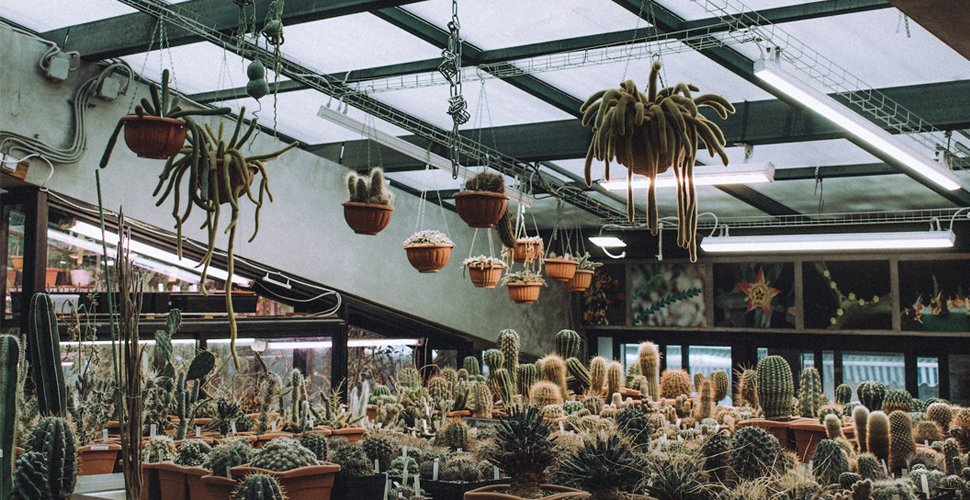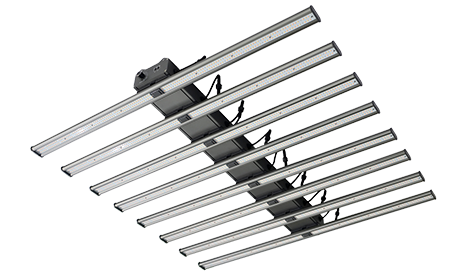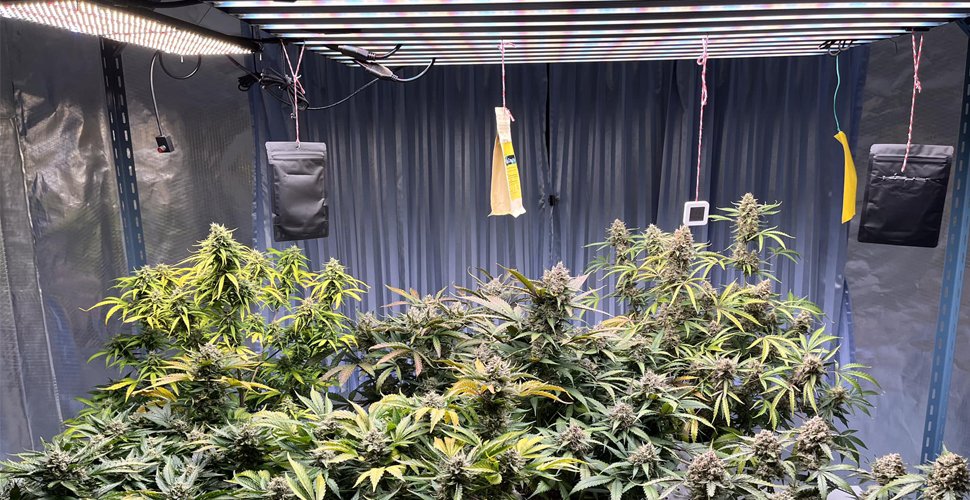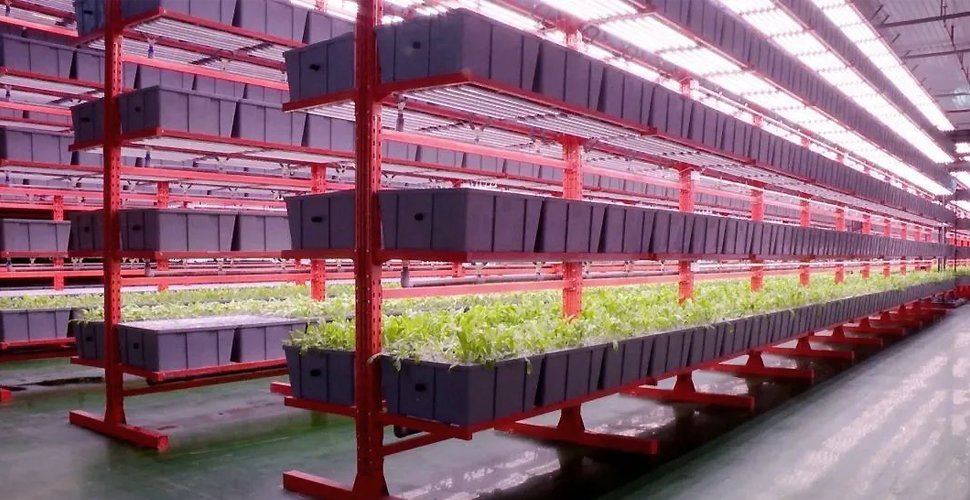Yes. Regular LED lights can help plants grow. However they are not as effective as LED grow lighting designed specifically for this purpose.
Are you going to carry out your indoor gardening if you want to explore this issue?
Regular lights do not have enough light output or power to help plants bloom and do not have the optimal spectrum needed for plant growth. Overall, they do not ensure that plants will thrive.
In this article, we will talk to you in detail about whether ordinary LED lights help plants grow and what makes a grow light different from LED. Whether you are new to indoor gardening, come on in and discuss it together.
Can You Put Grow Lights in A Regular Lamp?
I saw someone ask an interesting question on Reddit and wondered if you had such doubts.
She said there was not enough sunlight in her house. She wants to replace the normal bulb of her floor lamp with a special full spectrum lighting and wonders if this is possible. If it works out, she won’t need to buy a whole new set of light fixtures, saving some money while staying out of the way.
There was a similar question posted on Facebook. A gardener asked if it was possible to simply put a grow light in her overhead light accessories.
When an enthusiast replied that the distance between the plant and the light was too far, the poster replied, “But the sun is really far away. Maybe She is stuck at a dead end. Full spectrum lamps are the “sun” that belongs to the plant, and the “sun” we are facing is a big nuclear reactor.
Truth be told, replacing grow lights for indoor herbs in regular fixtures or replacing them in overhead fittings is not worth it. Why?
- The full spectrum lighting is mounted in the overhead light, making the light too far away from the plants. It cannot have any real meaningful impact on the plants.
- Both floor and overhead lights are used for daily lighting for human activities. If the grow light is used as daily lighting, it can have certain bad effects on human eyes.
- Some bulbs require adapters to plug into the bulb.
- Install the plant light in the right place to play its role effectively.
Click and view the video below to learn about Grow Lights vs Regular Lights
Grow Lights VS Regular Lights
Perhaps those concepts of the spectrum and light intensity terminology are difficult for you to understand. To put it in the most popular way, LED grow lights are stronger than regular LED lights.
Spectrum
The color of the light is an important consideration. By color, we do not mean the color of light that you can see. The color of light refers to the color spectrum covered by light.
Regular LED lights are designed for general lighting purposes, to illuminate a room, or to provide task lighting for specific activities. These lights emit only a broad spectrum suitable for human vision and do not necessarily provide the optimal spectrum for plant growth.
The full spectrum lighting is specifically designed for indoor plant growth, the “sun” for plants. It mimics the sun to provide the natural spectrum that plants need to grow and thrive.
The LED full spectrum does not only emit white or yellowish light but includes red and blue light.
Have you ever seen some plant lights emitting a harsh purple light? This is because such plant lights only have red light and blue spectrum. These two types of light are the two most important wavelengths for photosynthesis.
Each type of light has a specific meaning, and each light is helpful for plant growth, whether it is blue, red, green, or yellow light.
Lighting Intensity
Regular lights typically provide a range of light suitable for human vision, including visible light and some infrared and ultraviolet radiation.
However, these lights are not optimized for plant growth and may not provide the specific wavelengths of light that plants need to carry out photosynthesis and other processes.
Full spectrum LED lighting is designed to provide the specific wavelengths of light that plants need to photosynthesize, grow, and bloom. LED grow lights provide higher light intensities than regular light because plants need more light or stronger light for photosynthesis and other metabolic processes.
The intensity of light required will vary from species to species and growth stage to growth stage, and now, professional horticulture lighting suppliers produce grow lights with adjustable spectra according to what is needed. This is what regular lights cannot do.
Is it impossible to imagine in your mind exactly how strong the light is to carry out photosynthesis?
You can try going to a nearby grow store or LED grow lights wholesale distributors and let the owner show you the lights. You feel with your own eyes that the light intensity of the plant light is different from that of our daily lighting.
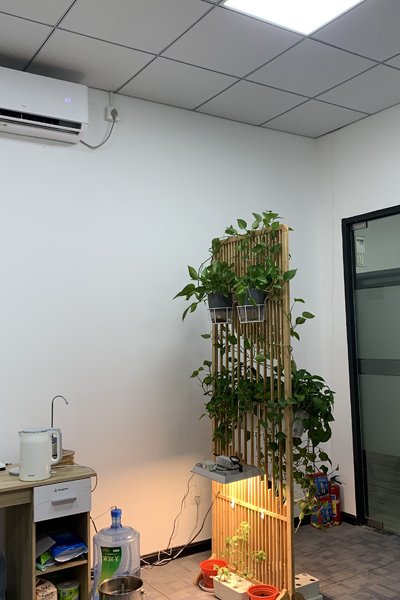
Possible Problems with Regular LED Lights
Why are LED lights not the best choice for indoor growing? After watching the above video introduction as well as the picture display, you should understand. Here are a few reasons that may help you understand better.
1. Slow down the growth of plants
You know roughly the growth pattern of your houseplants. If your plants are not meeting growth standards, then lack of light is the first area of care you should be thinking about.
Even though standard LED lights won’t accelerate growth as much as they would with LED grow lights, there may be some growth. However, if your plants are barely germinating, then you need to replace your regular plant lights with full-spectrum lighting.
2. Unusual Leaf Colors
You know what color the leaves of houseplants are supposed to be, so you have to be alert when you see any color other than these. These new leaves are not growing as healthy as they should because they don’t have the right amount of light.
3. Leggy
Leggy is the classic expression of lack of light. No leaves and no flowers. For the uninitiated indoor gardener, it may be confused with growth.
4. Leaves Turn Brown
Just as pale green and yellow foliage is a cause for concern. If you notice the leaves of your houseplants turning brown, it is the leaves telling you that it is dehydrating. It is not suitable for further exposure to strong light conditions.
5. Sagging or Falling Off
Does your tall houseplant suddenly look limp? This is because your plant has become too weak to sustain itself under bright LED lighting. Please promptly adjust and reduce the light intensity, and replenish water, and your plant should straighten up over time.
Conclusion
Overall, while regular lights can be used for indoor plant growth, they are not as effective as grow lights specifically designed for this purpose. It is best to use a full spectrum led grow light bar to ensure that your plants thrive in all stages of growth.
Light is an essential requirement for any plant to thrive. Choosing the right lights will not only make your plants happier but will also reduce your daily maintenance costs.
If you’re serious about indoor gardening, investing in quality grow lights can make a big difference in the health and productivity of your plants. Continue reading our post for an in-depth look at how do grow lights affect plant growth.
Hopefully, your full spectrum lighting will provide you with a long-term happy growing garden.
Jayes
As a Digital Marketing Manager at AUXGROW, Jayes combines a passion for hydroponic systems and expertise in LED grow lights. With hands-on experience and a deep understanding, Jayes guides you through the world of sustainable cultivation.

